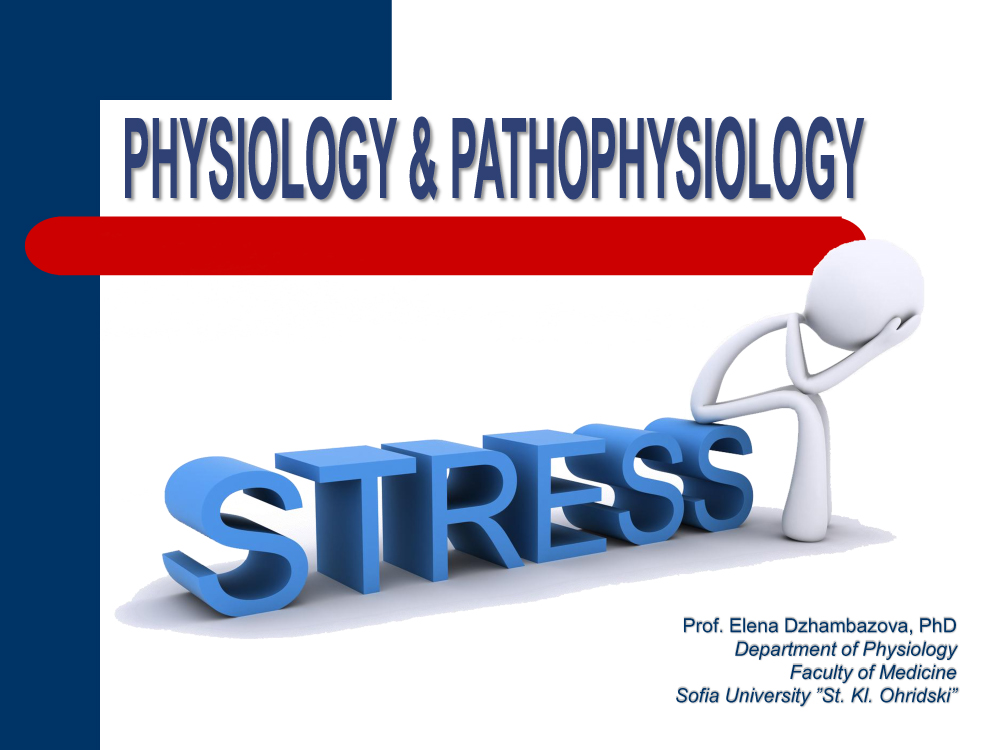Настройки на записването

The problem "STRESS" is of prime importance in the life of modern man. The term "stress" is widely used in contemporary scientific literature, journalism, and colloquial speech, but it is difficult to define, given the wide variety of its causes and manifestations. It is generally accepted that stress represents a state of threatened/disturbed homeostasis caused by internal or external adverse forces (stressors) and is counteracted by complex physiological and behavioral responses aimed at maintaining/restoring homeostasis. The adaptive stress response depends on a highly interconnected neuroendocrine, cellular and molecular infrastructure, i.e. the so-called stress system. Dysregulation of the stress system can directly contribute to the development or exacerbation of disease or be the cause of behaviors that increase the risk of disease, such as smoking, overeating, drug abuse. The elective course will introduce students to the organization and physiology of the stress system, focusing on its interactions with other CNS centers and endocrine axes, and review the existing evidence linking stress to the pathophysiological mechanisms involved in the development of stress-related diseases.
- Teacher: Проф. Елена Джамбазова, дм